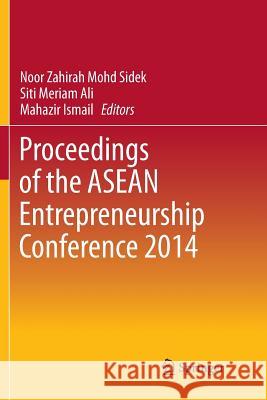Proceedings of the ASEAN Entrepreneurship Conference 2014 » książka
topmenu
Proceedings of the ASEAN Entrepreneurship Conference 2014
ISBN-13: 9789811090684 / Angielski / Miękka / 2019 / 301 str.
Kategorie:
Kategorie BISAC:
Wydawca:
Springer
Język:
Angielski
ISBN-13:
9789811090684
Rok wydania:
2019
Wydanie:
Softcover Repri
Ilość stron:
301
Waga:
0.44 kg
Wymiary:
23.39 x 15.6 x 1.65
Oprawa:
Miękka
Wolumenów:
01
Dodatkowe informacje:
Wydanie ilustrowane











